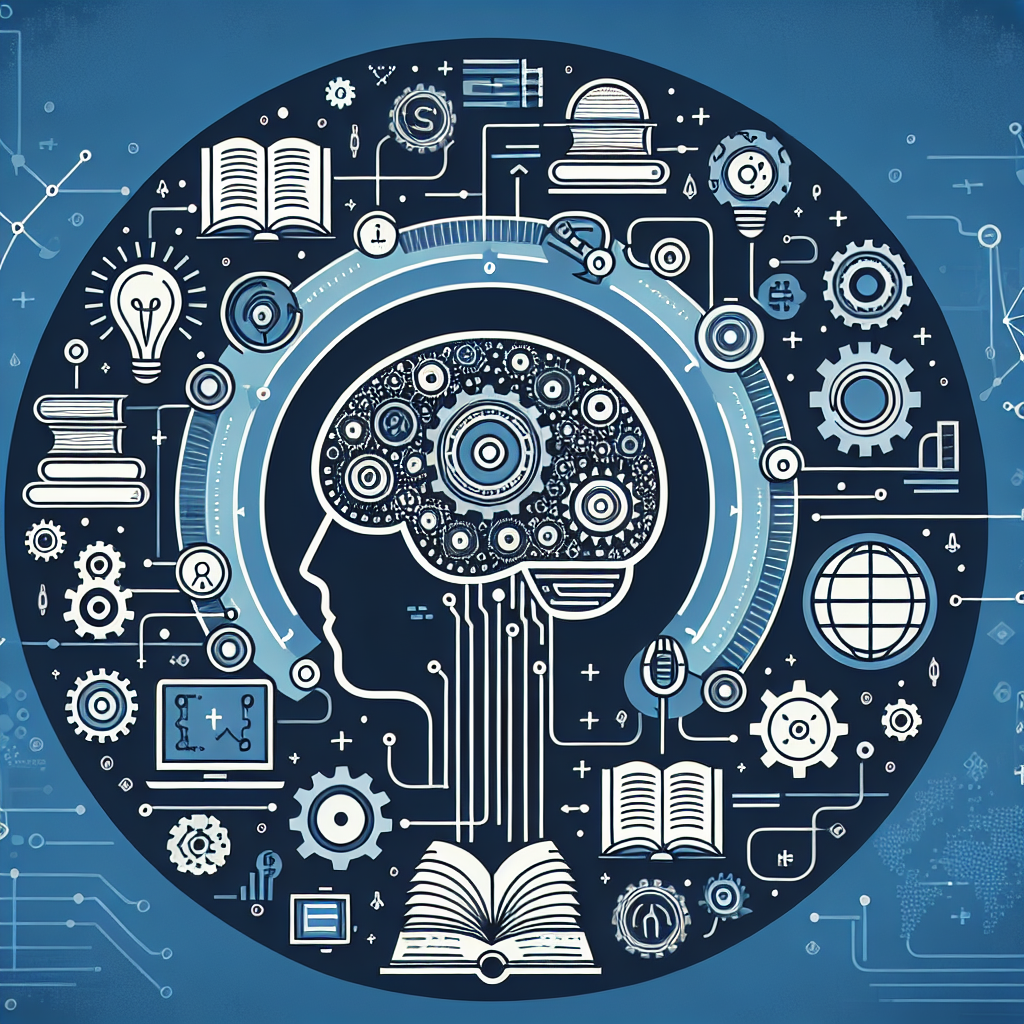The Future of AI Software in Personalized Learning
Artificial Intelligence (AI) has already begun to revolutionize the education sector, particularly in the field of personalized learning. Personalized learning is a method of teaching and learning that tailors instruction to the individual needs, skills, and interests of each student. By leveraging AI technology, educators can create more effective and engaging learning experiences for students, ultimately improving outcomes and preparing them for success in a rapidly changing world.
AI software in personalized learning uses algorithms and machine learning techniques to analyze data on students’ performance, preferences, and behaviors. This data can include information on how students learn best, their strengths and weaknesses, and areas where they may need additional support. By collecting and analyzing this data, AI software can provide personalized recommendations for students, such as which topics to focus on, what resources to use, and how to improve their performance.
One of the key advantages of AI software in personalized learning is its ability to adapt to the needs of individual students in real-time. Traditional classroom settings often rely on a one-size-fits-all approach to teaching, which can leave some students struggling to keep up while others become bored and disengaged. AI software, on the other hand, can adjust the pace and content of instruction to match each student’s learning style and abilities, providing a more tailored and effective learning experience.
Another benefit of AI software in personalized learning is its ability to provide immediate feedback to students. Traditional assessments, such as tests and quizzes, are often time-consuming to grade and provide feedback on, which can delay students’ understanding of their performance and areas for improvement. AI software can provide instant feedback on students’ work, highlighting errors, suggesting corrections, and offering additional resources to help students master the material.
AI software in personalized learning also has the potential to revolutionize the role of educators. By automating routine tasks, such as grading assignments and tracking student progress, AI software can free up teachers to focus on more meaningful and personalized interactions with students. Educators can use the data and insights provided by AI software to better understand their students’ needs, tailor instruction to meet those needs, and provide targeted support where necessary.
As AI technology continues to advance, the future of AI software in personalized learning holds great promise. Here are some key trends and developments to watch for in the coming years:
1. Adaptive learning platforms: Adaptive learning platforms use AI algorithms to personalize instruction for each student based on their individual learning needs and preferences. These platforms can analyze data on students’ performance, behavior, and engagement to provide real-time recommendations for how to improve their learning outcomes.
2. Virtual tutors: Virtual tutors are AI-powered assistants that can provide personalized support and guidance to students as they work through assignments and projects. Virtual tutors can answer questions, provide explanations, and offer feedback, helping students to stay on track and master the material.
3. Gamification: Gamification is the use of game elements, such as points, badges, and leaderboards, to engage and motivate students in their learning. AI software can analyze students’ gameplay data to identify patterns and trends, allowing educators to tailor instruction to each student’s unique gaming preferences.
4. Natural language processing: Natural language processing (NLP) is a branch of AI that enables computers to understand and generate human language. NLP technology can be used to create chatbots and virtual assistants that can interact with students in natural language, providing personalized support and guidance.
5. Data privacy and security: As AI software in personalized learning collects and analyzes increasing amounts of data on students, ensuring data privacy and security will be critical. Educators and policymakers will need to establish clear guidelines and regulations to protect students’ personal information and ensure that AI software is used responsibly and ethically.
FAQs
Q: How does AI software in personalized learning benefit students?
A: AI software in personalized learning benefits students by providing tailored instruction that matches their individual learning needs and preferences. This can help students to stay engaged, motivated, and on track to achieve their learning goals.
Q: Can AI software in personalized learning replace teachers?
A: AI software in personalized learning is not meant to replace teachers, but rather to support and enhance their work. Educators play a critical role in interpreting the data and insights provided by AI software, and in providing personalized guidance and support to students.
Q: Is AI software in personalized learning accessible to all students?
A: As AI technology continues to advance, there is a growing focus on making personalized learning tools more accessible and inclusive for all students. Educators and developers are working to ensure that AI software in personalized learning is designed with diverse student populations in mind, and that it meets the needs of students with disabilities and other special requirements.
Q: How can educators integrate AI software in personalized learning into their teaching practices?
A: Educators can integrate AI software in personalized learning into their teaching practices by first familiarizing themselves with the technology and its capabilities. They can then work with their school or district to identify opportunities for using AI software to enhance instruction, support student learning, and improve outcomes.
In conclusion, the future of AI software in personalized learning is bright, with exciting developments and advancements on the horizon. By leveraging AI technology to create more tailored, effective, and engaging learning experiences for students, educators can help prepare the next generation for success in a rapidly changing world. As AI software continues to evolve and improve, the possibilities for personalized learning are endless, offering new opportunities for students to learn, grow, and thrive.

